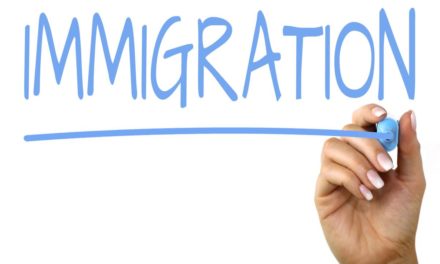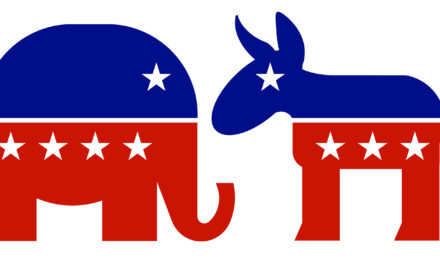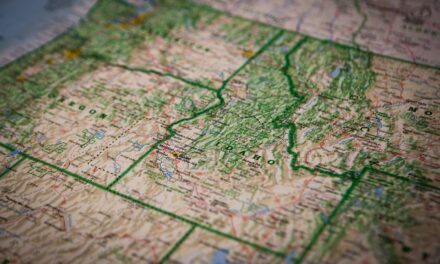By Tim Aalders, U.S. Senate Candidate
Many ask me what my views on freedom are, what I would like to see if elected, and what I will work towards. This will give a brief answer to that.
The Origins of Freedom
Condensed from Tim Aalders' unpublished writings The History of Freedom.
Before the Founders of our nation could seek separation from England they had to answer one defining question. Where does freedom originate? Since the beginning of civilized man, there have been those who, because of their situation of birth, education, or charisma, could gather enough followers and then convince others they should lead either by force or coercion. So the question asked by many of the founders was: Does freedom exist based on what a forceful leader grants us, or does it reside from within every individual granted by a god or nature’s creator?
In the end it is simple to see the final decision of our founders. Where the origins of freedom originated is clearly written in the Declaration of Independence.
Declaration of Independence
Our Founding Fathers risked everything they had to create a new nation, the United States of America. They didn’t rebel against England for personal enrichment; they rebelled because they truly believed that the loss of freedom was worse than death.
- Benjamin Franklin
Creation of Government
The second concern, once independence was won, was how to establish a government that left control with the people while protecting Freedom? A huge debate arose among the representatives of the original thirteen colonies. There are three reasons for a central government:
- to avoid tyranny
- to allow more participation in politics
- to use the states as "laboratories" for new ideas and programs.
As James Madison pointed out in The Federalist, No. 10, If "factious leaders kindle a flame within their particular states," national leaders can check the spread of the "conflagration through the other states." So federalism prevents a person in control of a state from easily taking control of the federal government.
Electing both state and national OFFICIALS also increases the input of citizens into their government. If a state adopts a disastrous new policy, it would not be a catastrophe for everyone. On the other hand, if a state's new programs work well, other states can adopt their ideas and adjust them to their own needs.
The rules of implementation were placed within our Constitution, defining the roles of the people. the states, and finally the new Federal government. How much power the Federal government is granted and how much is to reside within the States and the people is also enumerated.
Article 1, Section 8
1: The Congress shall have Power To lay and collect Taxes, Duties, Imposts and Excises, to pay the Debts and provide for the common Defence and general Welfare of the United States; but all Duties, Imposts and Excises shall be uniform throughout the United States;
2: To borrow Money on the credit of the United States;
3: To regulate Commerce with foreign Nations, and among the several States, and with the Indian Tribes;
4: To establish an uniform Rule of Naturalization, and uniform Laws on the subject of Bankruptcies throughout the United States;
5: To coin Money, regulate the Value thereof, and of foreign Coin, and fix the Standard of Weights and Measures;
6: To provide for the Punishment of counterfeiting the Securities and current Coin of the United States;
7: To establish Post Offices and post Roads;
8: To promote the Progress of Science and useful Arts, by securing for limited Times to Authors and Inventors the exclusive Right to their respective Writings and Discoveries;
9: To constitute Tribunals inferior to the supreme Court;
10: To define and punish Piracies and Felonies committed on the high Seas, and Offences against the Law of Nations;
11: To declare War, grant Letters of Marque and Reprisal, and make Rules concerning Captures on Land and Water;
12: To raise and support Armies, but no Appropriation of Money to that Use shall be for a longer Term than two Years;
13: To provide and maintain a Navy;
14: To make Rules for the Government and Regulation of the land and naval Forces;
15: To provide for calling forth the Militia to execute the Laws of the Union, suppress Insurrections and repel Invasions;
16: To provide for organizing, arming, and disciplining, the Militia, and for governing such Part of them as may be employed in the Service of the United States, reserving to the States respectively, the Appointment of the Officers, and the Authority of training the Militia according to the discipline prescribed by Congress;
17: To exercise exclusive Legislation in all Cases whatsoever, over such District (not exceeding ten Miles square) as may, by Cession of particular States, and the Acceptance of Congress, become the Seat of the Government of the United States, and to exercise like Authority over all Places purchased by the Consent of the Legislature of the State in which the Same shall be, for the Erection of Forts, Magazines, Arsenals, dock-Yards, and other needful Buildings;—And
18: To make all Laws which shall be necessary and proper for carrying into Execution the foregoing Powers, and all other Powers vested by this Constitution in the Government of the United States, or in any Department or Officer thereof.
Anything outside of these listed should not be allowed by a free people or a sovereign state. Thus the job of our elected officials on the Federal level should be easy. They have a roadmap. The problem is two parties that ignore the rules and seek power. We were warned to keep it simple..
- James Madison
- Daniel Webster
- George Washington
Getting our country back on track will not be easy but we do have the proper foundation and roadmap to follow. Getting those that seized power to give up that power will be difficult. States could play a major role in this. According to the 10th Amendment to the Constitution; all powers not specifically granted to the federal government by the states in the
Constitution are retained by the states and the people.
Today we are left a choice; break the chains the two party system has placde upon us or accept the loss of freedom and any consequences that may bring. I, for one, choose freedom.
- George Washington
- George Washington
- Samuel Adams




